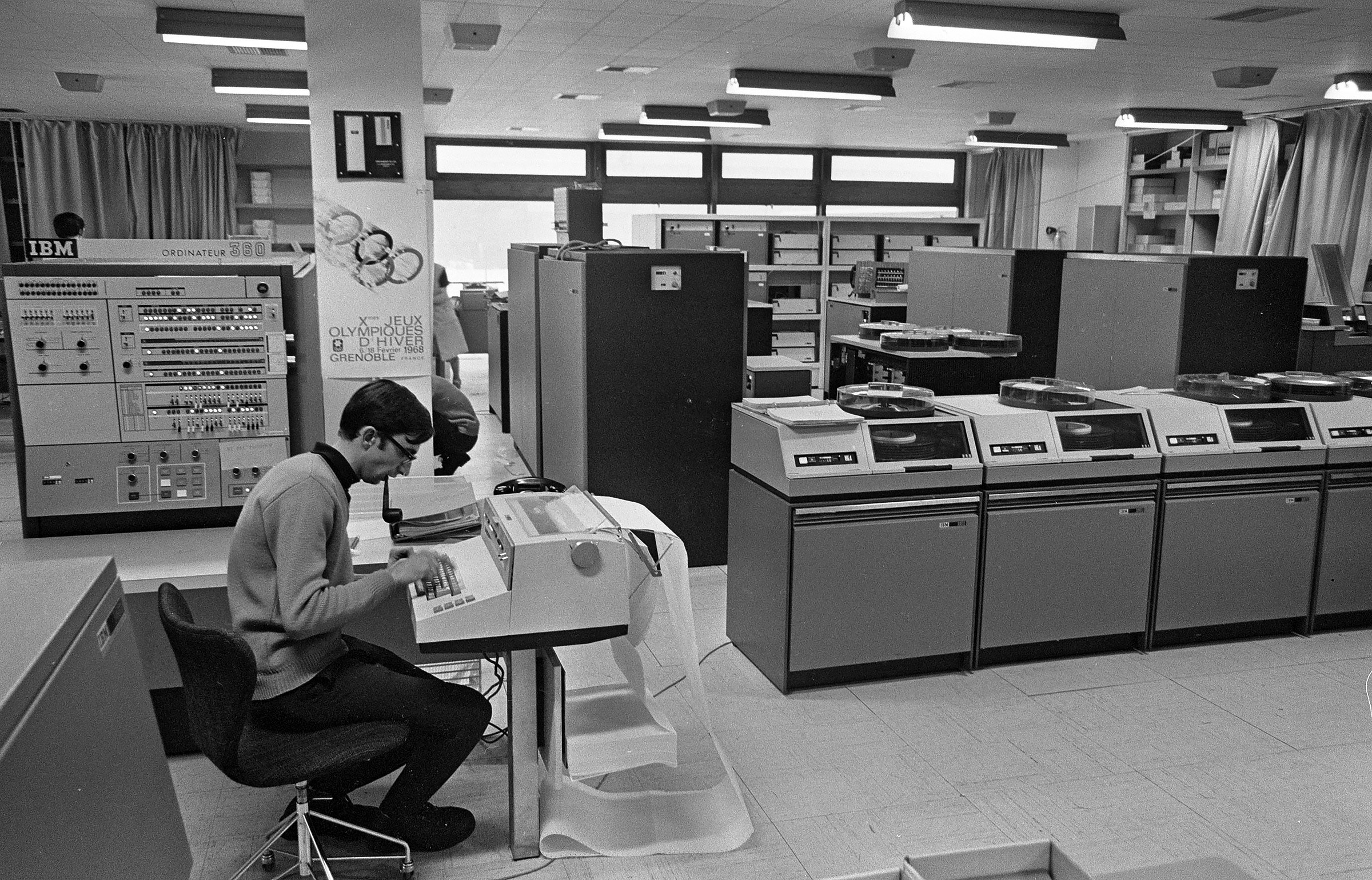Long-enduring COBOL on the decline

IBM System/360 mainframe computer at the Grenoble Olympic Winter Games computing centre, January 1968. Photo Ron Kroon/Anefo. Dutch National Archives.
COBOL, that ancient (60+ year old) language, has long refused to go extinct. Many large systems around the world still speak it, and cobolists remain in high demand (you can even take a COBOL programming course through IBM in partnership with the Open Mainframe Project). But there are signs that large organisations with massive COBOL systems are increasingly willing to switch to a slightly more modern language like Java. Walter Sweat, CTO of Astadia, a company that helps companies modernize their infrastructure, believes the move away from COBOL is a growing trend. Two years ago, only half of the potential customers he spoke with wanted to upgrade their systems to another programming language. Today, he estimates that 75 to 80% of them want to give up COBOL. But Barry Baker, vice president at IBM, tempers that statement by asserting that COBOL is not about to go quiet, even if it is increasingly easy to translate mission-critical applications into more modern and versatile languages.
Which gives us an opportunity to air out an oldie but a goodie: a COBOL programmer had made so much money with the Y2K bug that he was able to treat himself to high-end cryonics. Much later, he’s brought back to life, and asks why he’s thawed. “This is 9999. And you know COBOL.”
⇨ IEEE Spectrum, Sam Byford, “Long-enduring COBOL may still have a shelf life.”
2022-02-24
